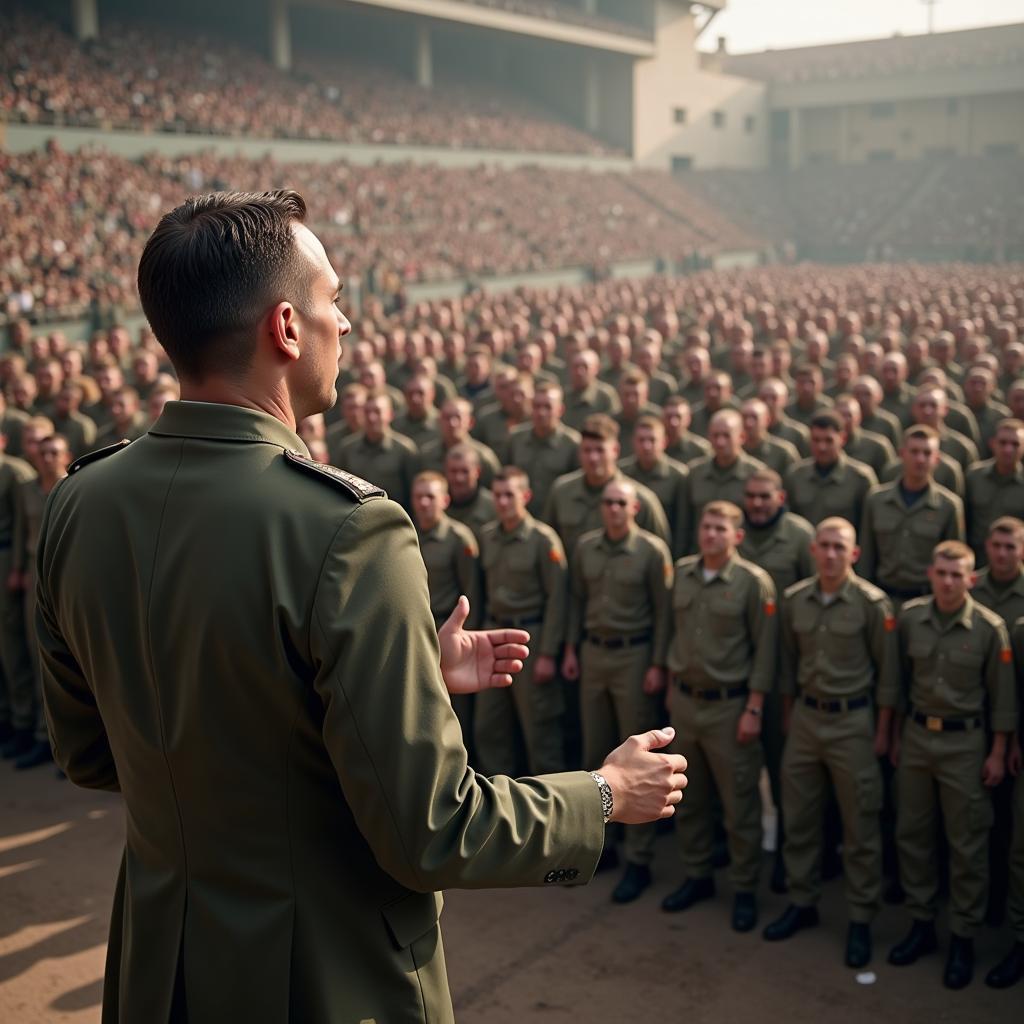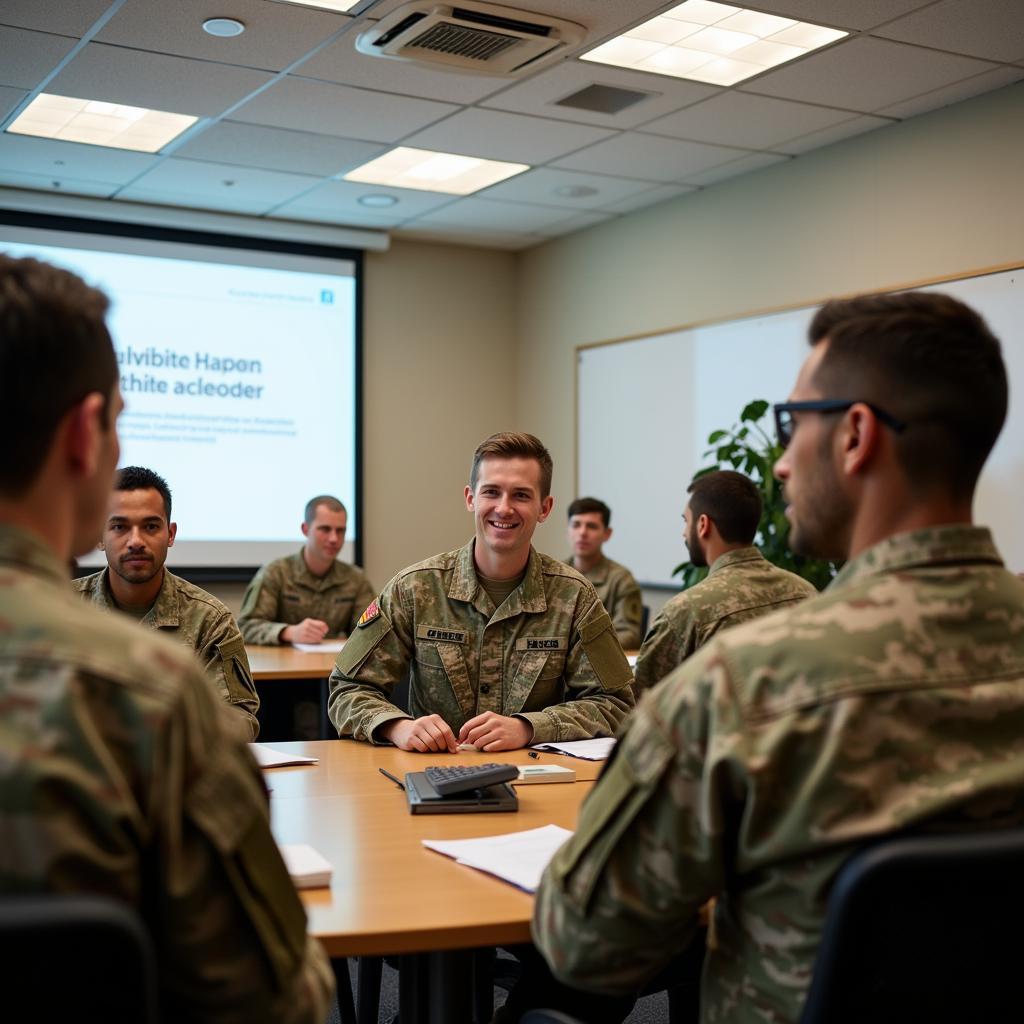A Rank in the Army That Means Huge: Understanding Military Hierarchy
November 6, 2024A Rank In The Army That Means Huge responsibility and authority often signifies a significant position within the military hierarchy. This article delves into the complexities of military ranks, exploring what constitutes a “huge” rank and the responsibilities that come with it. We’ll examine various aspects, from the organizational structure to the leadership qualities required at the highest echelons.
What Does a “Huge” Rank Really Mean?
In the military, “huge” isn’t just about impressive titles; it’s about the scope of command, the strategic influence, and the profound impact on operations. While a soldier’s rank designates their position within the hierarchical structure, a “huge” rank implies a significant level of authority and responsibility, influencing everything from resource allocation to strategic decision-making. These ranks often involve overseeing large numbers of personnel, managing complex operations, and contributing to national security policy.
The Significance of General Officer Ranks
General officer ranks, such as Brigadier General, Major General, Lieutenant General, and General, represent some of the “hugest” ranks in the army. These individuals hold substantial command authority and play pivotal roles in shaping military strategy. Their decisions can impact the lives of thousands of soldiers and influence the outcome of conflicts.
The path to achieving such a rank is long and arduous, demanding years of dedicated service, exceptional leadership skills, and demonstrated competence in various roles. It’s not just about seniority; it’s about earning the trust and respect of subordinates and superiors alike.
Responsibilities that Come with a “Huge” Rank
Holding a “huge” rank comes with immense responsibility. These leaders are not just managers; they are strategists, mentors, and decision-makers who shape the direction of the military. They are responsible for:
- Strategic Planning: Developing and executing long-term military strategies, ensuring alignment with national security objectives.
- Resource Management: Overseeing the allocation of personnel, equipment, and budget to support various operations.
- Leadership Development: Mentoring and guiding future leaders, fostering a culture of excellence and professionalism within the ranks.
- International Relations: Engaging with foreign military leaders and diplomats, fostering cooperation and addressing security challenges.
These responsibilities demand not only tactical expertise but also strong ethical principles and unwavering dedication to the mission.
The Importance of Experience and Expertise
Experience and expertise are crucial for individuals holding “huge” ranks. They must possess a deep understanding of military doctrine, operational planning, and strategic decision-making. Their knowledge and insights are invaluable in navigating complex security landscapes and ensuring the effectiveness of military operations.
“A true leader isn’t defined by the rank they hold, but by the impact they have on the lives of those they lead,” says General Mark Thompson (Ret.), former Chief of Staff of the Army. “It’s about empowering others, fostering innovation, and building a cohesive team capable of overcoming any challenge.”
 Military Leader Addressing Troops
Military Leader Addressing Troops
The Path to Achieving a “Huge” Rank
The journey to a “huge” rank is paved with dedication, perseverance, and a commitment to excellence. It requires continuous learning, adaptability, and a willingness to embrace challenges. Aspiring military leaders must demonstrate exceptional performance in various roles, cultivating strong leadership qualities and earning the respect of their peers and superiors.
“Success in the military isn’t about chasing promotions,” advises Brigadier General Susan Davis (Ret.), former Commander of the Army Training Center. “It’s about striving to make a meaningful contribution, serving with integrity, and inspiring others to achieve their full potential.”
 Military Leadership Training
Military Leadership Training
Conclusion
A rank in the army that means huge signifies not only authority and responsibility but also the culmination of years of dedication and service. These leaders play crucial roles in shaping military strategy, managing complex operations, and contributing to national security. Their impact extends beyond the battlefield, influencing the lives of countless individuals and contributing to a safer and more secure world.
FAQ
- What is the highest rank in the army?
- How long does it take to achieve a general officer rank?
- What are the key responsibilities of a general officer?
- What qualities are essential for military leadership?
- How does the military hierarchy function?
- What are the different career paths within the army?
- What are the educational requirements for joining the military?
Suggest other related articles on this website:
- Yamal’s Path to Greatness
- Yamal: The Emerging Star
- Analyzing Yamal’s Performance
For further assistance, please contact us:
Phone Number: 0915117113
Email: [email protected]
Address: To 3 Kp Binh An, Phu Thuong, Viet Nam, Binh Phuoc 830000, Viet Nam.
We have a 24/7 customer support team.